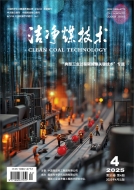Current situation and prospect of machine learning-driven boilercombustion optimization technology
 2024 No. 02
2024 No. 02
 755
755 516
516

Citation format:

Authors:
- YAO Shunchun
- LI Longqian
- LU Zhimin
- LI Zhenghui

Unit:
- School of Electric Power,South China University of Technology
- Key Laboratory of Energy Efficiency and Clean Utilization in Guangdong Province

Abstract:
With the rapid increase of installed capacity of renewable energy power generation,unstable conditions such as variable load andunstable combustion during deep peak regulation put forward higher requirements for combustion optimization control of thermal powerunits. The rapidly developing artificial intelligence technology and deep learning algorithm provides an important means for boiler parameterprediction modeling and optimization. In terms of machine learning algorithms, this paper summarized the research status of feature screening and modeling algorithms, and pointed out that traditional statistical methods and linear dimensionality reduction methods had poor scientific interpretation and can not identify high-dimensional data well, and feature screening methods combined with deep learning algorithms had more obvious advantages in processing complex thermal power unit data. The advantages and disadvantages of various neuralnetworks in NOx emission concentration modeling were compared. Among them, long short-term memory neural network and convolutionalneural network have better effects in processing time series data, and the integrated model can improve the generalization ability and robustness of the whole model by combining the advantages of different learners. In the application of prediction model, the establishment ofprediction model for SCR denitration system can facilitate operators to simulate and modify adjustable parameters, and at the same time,it can be used as a soft measurement method to monitor the operating state of the combustion system. Advanced control methods, such asfeedforward control and model predictive control, which introduce NOx emission concentration prediction model, can effectively improvethe poor effect of traditional PID control for thermal power units. In multi-objective optimization, NOx removal efficiency and boiler efficiency or denitrification cost are usually used as optimization objectives, in order to achieve the harmonious unity of economic and social benefits.

Keywords:
- machine learning
- NOx emission
- deep peak shaving
- prediction model
- multi-objective optimization control

Citation format:

Chart:

Articles:

-
Executive director
China Coal Science and Industry Group Co., Ltd
-
Sponsored by
Coal Science Research Institute Co., Ltd
Coal Industry Clean Coal Engineering
Technology Research Center -
Editor in Chief
XIE Qiang
-
Vice Editor-in-Chief
YU Chang
SHI Yixiang
ZHAO Yongchun
DUAN Linbo
CAO Jingpei
ZENG Jie -
Publication Frequencies
Monthly
-
ISSN
1006-6772
-
CN
11-3676/TD
Covered by
- CSTPCD
- RCCSE(A+)
- AJ
- EBSCO host
- Ulrichsweb
- JST
- Scopus
Contact us
New Media
-
 Meichuanmei
Meichuanmei -
 Clean Coal Technology
Clean Coal Technology -
 Online Journals
Online Journals






 Submission system
Submission system Copyright agreement
Copyright agreement Instructions for authors
Instructions for authors